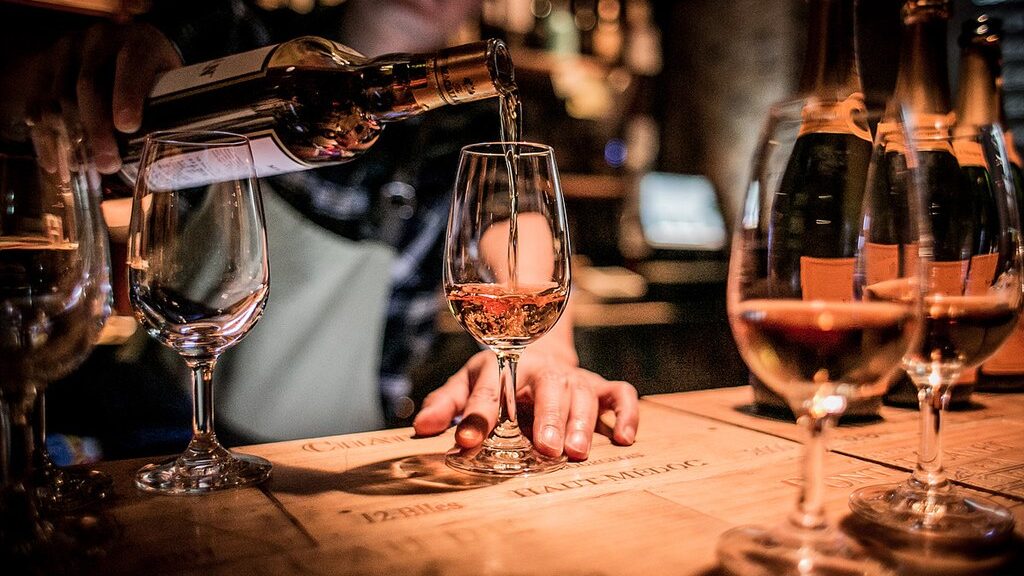Who needs wine by the pint?

The BBC reports yet another Brexit Benefit you never knew you needed – pint-sized bottles of wine. They rightly warn demand for this innovation among producers and bottlers – and we’d argue consumers too! – is yet untested. This highlights the issue of economies of scale which is impacting all business in the UK; UK businesses are reporting that if UK standards diverge, then business needs to meet both standards to maintain their market share.
The report is a result of a government consultation on weights and measures. And while the vast majority of us seem to want to keep grams and metres, the government have decided to allow wine to be sold in pints, a measure allegedly enjoyed by Churchill.
The decision was foreshadowed in an article, entitled “Wine, the pint bottle and European standards” by Niall Ó Conghaile published by the East Anglia Times. Niall looks at the evolution of the 750ml bottle of wine as standard and the UK’s role in shaping it. He also notes that the market of buyers and sellers is now global to the extent that even taste is being tuned to US and East Asian tastes. As the UK is no longer the dominant market, it seems rather naive to expect it to set standards. So why is it that many still struggle to accept the UK’s role and the need for harmonisation?
With permission we reproduce Niall’s article.
Wine, the pint bottle and European standards
Historically Britain has led the way in setting international standards. So will the pint bottle of champagne return in a post Brexit world?
Following Brexit there was a lot of excitement in the UK about the possible return of the pint bottle of champagne. Apparently, this size of bottle was much beloved of Winston Churchill, and so for reasons to do with winning the War (?) it was important that the pint bottle return.
The claim had become widespread before Brexit that the pint bottle had been banned by metrification and the diabolical Brussels bureaucrats. Of course, it was all nonsense. Pint bottles of cider, for example, are widely available under European law.
So why can’t you get pint bottles of champagne?
It’s because of regulation and standardisation. Just not in the way that you might think.
The 750 ml bottle is now almost the global standard. However, in the past in France (and indeed Europe) non-standard bottle sizes were common.
Over time the variations reduced to the few that remain today in your local Auchan, Lidl or Kaufland. But why are Britons forced to drink the continental 750 ml and not a true British pint of champers?
Actually, the 750 ml is British, or at least “for Britain”. Dealing with all those irregular wine bottle sizes, and an irregular number of bottles to the case, was an irritant to the wine merchants and wholesalers of London in centuries gone by.
So they began to demand more standard formats. Eventually the six bottles of 750 ml was settled on as the standard in Bordeaux in order to facilitate exports to London.
Why? The six bottles amounted to… one imperial gallon.
Why would a château in Bordeaux care?
The UK for much of the 19th century was the richest country in the world and had the richest middle class with the most disposable income. The UK was the largest importer of wine – other big consuming countries drank their own.
Moreover, the wholesalers in London were also often suppliers to British colonies and much of the rest of the world – in both the actual Empire, and the informal Empire. In places like Argentina, Britain was often the centre of the world. Hence the standards set in London became international standards.
Incidentally this British influence can also be seen in other ways in the world of wine, including the taste and types of fortified wines exported.
Standardisation meant that the pint bottle, for most wines, was effectively the Betamax of vessels: something to be nostalgic about, sure; but too costly to continue producing separately.
So who is the dominant force now?
The UK remains an important market for wine, of course. But it is very far from dominant.
Nowadays wine producers and the “Place de Bordeaux” market tend to have prices (especially at the top end) set by the United States and increasingly East Asian markets. This is even starting to change how the wine is produced and how it tastes.
The old wine markets of Europe, like London, that used to set the prices, have gone by the wayside. Now they just remain tram-stop names, and squares in old towns.
Post Brexit Britain is somewhat in the same position
Policymakers in the UK have to adjust to the reality of no longer setting international standards. The UK no longer offers markets of bulk. Nor does it have recognised high standards that others are keen to adopt.
Such realisation is painful, for sure. But isn’t it healthier than trying to keep up with the European and America behemoths. After all, Australia and Switzerland don’t try to have their own “world-leading standards”.
Yet many Brexiteers, and some in the Labour Party, seem to have difficulty in adjusting to the UK’s new place in the world.
Why are they finding their new role vis-à-vis standard-setting and regulation so hard to understand?
Once you accept that it’s inevitable that you will accept European standards, then the point becomes, why not get the full benefit of common standards by being inside a single market?
That’s the journey for the UK.
À la nôtre!
January 5, 2024
Brexit Spotlight is run by Another Europe Is Possible. You can support this work by joining us today. The website is a resource to encourage debate and discussion. Published opinions do not necessarily represent those of Another Europe.





